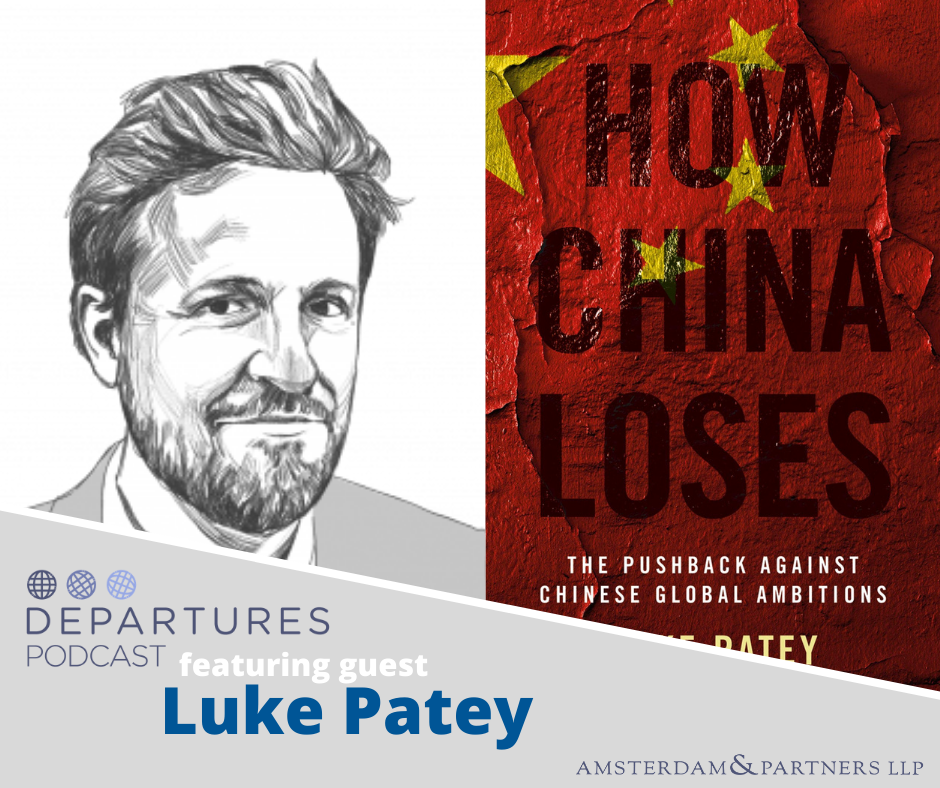Departures Podcast with Luke Patey

In recent years, China has gradually transitioned from a “quiet rise” strategy under Hu Jintao to the “wolf warrior” mode of diplomacy, as the government seeks to take more aggressive actions to defend its interests and expand its influence in the international environment. While this has in many cases produced successful outcomes, there is also a growing body of evidence that Beijing is running into resistance.
Luke Patey, a senior researcher at the Danish Institute for International Studies and Lead Senior Research Fellow at the Oxford Institute for Energy Studies, joins Robert Amsterdam on this podcast to discuss his fascinating new book, “How China Loses: The Pushback against Chinese Global Ambitions,” which focuses on these issues.
According to Patey, China has shown a determined strategy to use initiatives such as Belt and Road and Made in China 2025 to achieve dominance in high-tech industries and advanced manufacturing. Many fear that China’s economic clout, tech innovations, and military power will allow it to remake the world in its own authoritarian image. But despite all these strengths, a future with China in charge is far from certain, Patey argues.
There are increasing examples of this strategy failing – and not just because there is any sort of coherent resistance from Washington. China’s predatory economic agenda, headstrong diplomacy, and military expansion often undermine its global ambitions to dominate the global economy and world affairs. In Patey’s book, he interviews activists, business managers, diplomats, and thinkers from Africa to Latin America who have been found themselves turned off by Beijing’s charm offensive, revealing the challenges threatening to ground China’s rising power.











